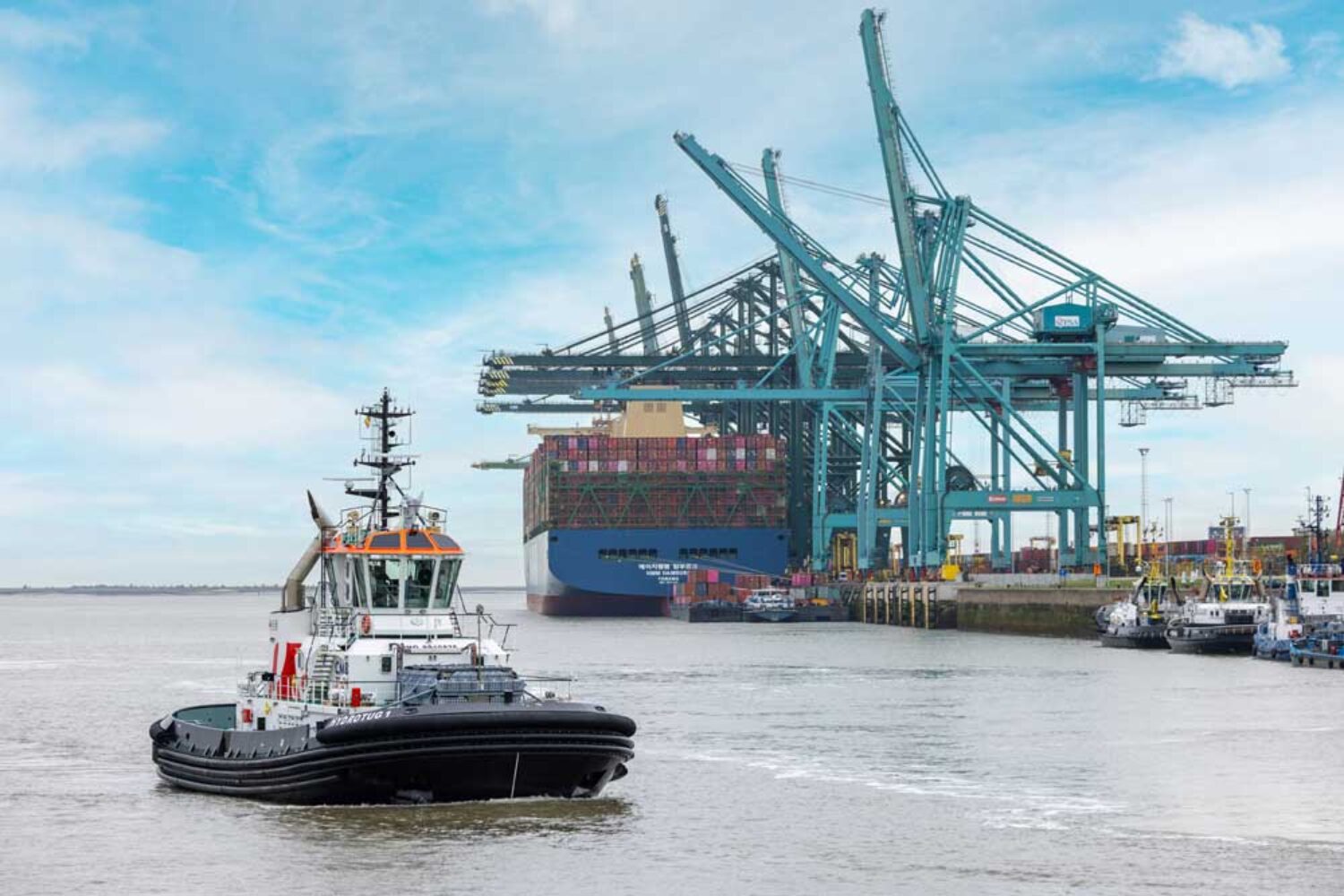The twin port of Antwerp-Bruges closed in 2024 with a growth in total throughput of 2.3% to 278 million tons.
Despite a turbulent economic climate with rising energy prices, geopolitical tensions and increased international competition, Antwerp-Bruges achieved a total throughput of 278 million tons in 2024.
Containers were the driving force behind this growth with an increase of 8.9% in tonnage and 8.1% in TEU. The handling of reefer containers increased by 9.2% and accounted for 8.6% of total container traffic. The port’s market share in the Hamburg-Le Havre range rose by 0.7 percentage points to 30.6 % in the first nine months.
Other segments, however, were affected by difficult market conditions. The chemical sector is experiencing its worst year since 2009, while sectors such as construction and the automotive industry have come under pressure from high energy and commodity prices and low demand. Instability in the Red Sea and geopolitical tensions led to longer transit times and uncertainty in international shipping.
General cargo remained at the same level (0.1%), with throughput of iron and steel increasing (+3.7%) while other product groups declined. In 2024, RoRo throughput fell by 3.4%, which was due to a decline in new car throughput (-9.4%). Dry bulk handling increased slightly (+0.4%). Hard coal, on the other hand, fell sharply (-35.4%), but fertilizers made up for this with growth of 22.9%.
Less handling of diesel and LNG at Antwerp-Bruges
Liquid bulk recorded a decline of 5.8%, which was primarily due to lower demand for diesel (-22.3%) and LNG (-21.9 %). In contrast, chemicals recorded strong growth (+14.8%), boosted by an increase in biofuels (+60.1%), despite continued pressure on the European chemicals sector. In 2024, 20,195 seagoing vessels called at Port of Antwerp-Bruges, a slight increase of 0.2 Zeebrugge welcomed 187 cruise ships and 557,000 passengers in 2024.













